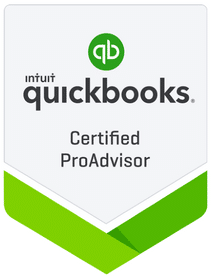- Patrick Roney
- (877) 503-8607
Follow Us :
Follow Us :
Proledge
January 31, 2025
For most SMEs active in the North American markets, digital accounting solutions have become interchangeable with long-term financial success. Are you the owner of a venture active in Texas, and do you want your services to continue their expansion process and your operations to remain free of IRS interference? If so, one of the best things you can do is leverage the professional services provided by our company. Why should you use a bookkeeping agency like ours that’s focused on providing online digital financial recordkeeping solutions? Ultimately, it’s all about automating the workflow of your employees and eliminating time wasted on legacy processes.
Via QuickBooks online banking, our professional agents will automate the importation process of your past financial transactions, set up scripts for the reconciliation of your current financial data, and eliminate the time-consuming task of manually reviewing and cataloging financial transactions. QuickBooks, together with other digital accounting solutions like Xero and Zoho Books, is primarily a tool useful for automating the vast majority of financial recordkeeping procedures whose implementation would have fallen on your employee’s shoulders.
Through QuickBooks Direct Connect and QuickBooks Webconnect, our team will link your bank account directly to your selected online account application, reducing the likelihood of entry errors with a direct impact on subsequent financial records. Plus, we’ll match the transactions active in your account with the ones recorded by the banks you collaborate with and simplify the overall management of your account payables and receivables by leveraging AI to tier incoming transactions based on your selected parameters.

In 2025, automation is the keyword most people mention when talking about online accounting solutions. Connecting bank account to QuickBooks is quite straightforward, and it’s something that can be accomplished via two separate procedures: DirectConnect and WebConnect. The first one is a more complex data transmission framework that permits the creation of a two-way connection between the user’s account and the QuickBooks program. To put it another way, with this method, the communication between the bank’s server and the QB app is permanent, and the information can be exchanged interchangeably.
With the legacy Web Connect option, communication goes one way, and the collected data must then be inserted manually into QuickBooks. Not all banks support QuickBooks Direct Connect, and in many cases, its implementation is not free. For US Bank, for example, the cost of Direct Connect integration between QuickBooks and your account will necessitate an investment of $9.95 per month. Meanwhile, since it’s a legacy service and it doesn’t offer the same level of automation, connecting QuickBooks to bank account via Web Connect is usually free.
Is connecting QuickBooks to bank account via DirectConnect difficult to do? No, actually, it is surprisingly easy. To make it happen, our team will require you to log in to your preferred online banking solution and enable DC. Then, we will go into your QuickBooks account, select banking, and perform the set-up process required when selecting the data available in the bank feed tab. Once the process is completed, we could go to the very same tab, click on Center, and then download the transactions that interest us, exactly like we would do via QuickBooks WebConnect. It’s not a difficult process, but it will be significantly easier to complete if you use the professional help of our agency.
Direct Connect is a complex account-linking approach that’s better for QuickBooks online banking matching transactions, as it permits the automatic download of transactional data based on specific parameters, enables two-way communication with your banks, and allows users to manage their upcoming bills directly via QuickBooks. However, since it’s integrated directly with the internal systems of the banks you collaborate with, Direct Connect has a more complex set-up process than Web Connect, and it’s also usually not free.
As we mentioned previously, US Bank charges a monthly fee of $9.95 for Direct Connect integration, which is the same as M&T Bank. However, depending on the account type, if you are a Regions Bank Customer, the same service could cost anywhere between $14.95 and $19.95. Web Connect, on the other hand, is a simpler account-linking tool that’s being used less and less in the digital medium, especially by companies that leverage QuickBooks online banking. Yes, it’s usually free, but Web Connect requires users to download and upload their QBO or OFX files manually, and it doesn’t have official support for invoice management or bill payments.
Do you have no problem downloading your files from time to time and uploading them manually to your bank account through QuickBooks? Is your business at the start of its professional journey, and so is the number of transactions you need to manage per month still somewhat manageable? In such a case, Web Connect might be an option to consider, especially since it’s free. However, if you require full automation for your QuickBooks online banking operations and you prioritize QuickBooks online banking matching transactions, Direct Connect is, at least in 2025, a much wiser choice.
You can contact us anytime if you have questions or encounter a problem with your bookkeeping program.
QuickBooks is one of the most popular online accounting solutions available to US-present companies, and it’s the application chosen by our agency to digitalize your firm’s financial recordkeeping procedures. However, besides transactions management and account payables and receivables remote organizing, QuickBooks also provides some underrated features that could have a significant positive impact on your organization’s long-term finances. What are these features?
For starters, QuickBooks allows the creation of custom accounting rules for the organization of ongoing or recurrent financial transactions. What this means is that pretty much any financial recordkeeping procedure can be automated via a specific set of parameters, which is something that could significantly reduce the workload of your employees. Secondly, QuickBooks can be utilized to generate financial reports that can later be reviewed by your firm’s CPA, analyze the budgeting forecasts for your current financial operations, keep track of the performance of your staff’s decision-making, and send invoices to multiple vendors at once.
Our team will use QuickBooks online banking to gather up-to-date insights about your firm’s cash flow statements, prepare the documentation necessary for your tax return, and, not least, create the informational blueprint required to assist your CPA in any way, shape, or form. On top of that, with the help of QuickBooks online banking matching transactions, we will ensure that your operations keep in line with the financial regulations active in your field and enable your employees to concentrate on the other departments of your business that require their direct expertise. Our high-quality personalized bookkeeping services can be an essential factor for your firm’s success and help you compete with the biggest players active in your sector.

The basic QuickBooks Online bundle available to US customers includes remote access to your firm’s account data for up to five different users at once, it enables the automation of the vast majority of bookkeeping procedures that affect the work productivity of your employees, allows access to QuickBooks Payment and comes bundled with mileage tracking functions, as well as receipt capture, sales tax estimates, and bill management capabilities.
Our locally present bookkeeping specialists will use QuickBooks online banking matching transactions to streamline the internal tasks conducted by your staff, mitigate the risks of your operations, and develop comprehensive reports that can be used by your senior management to dictate the overall direction of your firm’s financial operations. Sure, QuickBooks is not exactly the most cost-efficient accounting application in the field, which is why the US market is still characterized by a surprising number of SMEs who prefer to do their firm’s financial management operations manually. However, this, ultimately, can be a mistake.
Is your firm at the beginning of its professional journey, and are your market position and daily financial transactions still at a level that permits manual financial management? If so, most likely, this will not last for very long. At the end of the day, QuickBooks is a powerful accounting application that can be utilized to automate a significant number of the financial recordkeeping tasks required to maintain your firm’s operations at an optimum level. Can you do them manually? Sure, but not indefinitely. At least, not if you want to avoid attracting the unwanted attention of the IRS.


Fill out the form below to sign up to our Blog Newsletter and we’ll drop you a line when new articles come up.

For many business owners, taking care of their business is like taking care of a baby. If you want a successful business, you need to always pay attention to the

Bookkeeping and accounting are words that are used interchangeably by most people. It’s true that both of these are about the financial management of your business, but in different ways.

It’s that time again! The tax season is slowly but surely coming to an end and that means you can’t postpone it anymore. You’ve got to figure it out. We

There are lots of businesses that need to find efficient ways to keep track of their finances nowadays, and if you are a business owner, you have experienced this first-hand.

As we all know, automated means of running your business have started to become very popular recently due to all of the perks that it provides. This is not to

So you’re at that point in developing your small business where you’re looking into accounting solutions. If so, you might have started to wonder what’s the best bookkeeping software for
Bookkeepers.
Professional. Affordable.
ProLedge is a bookkeeping services firm.
Copyright © 2024 All rights reserved.